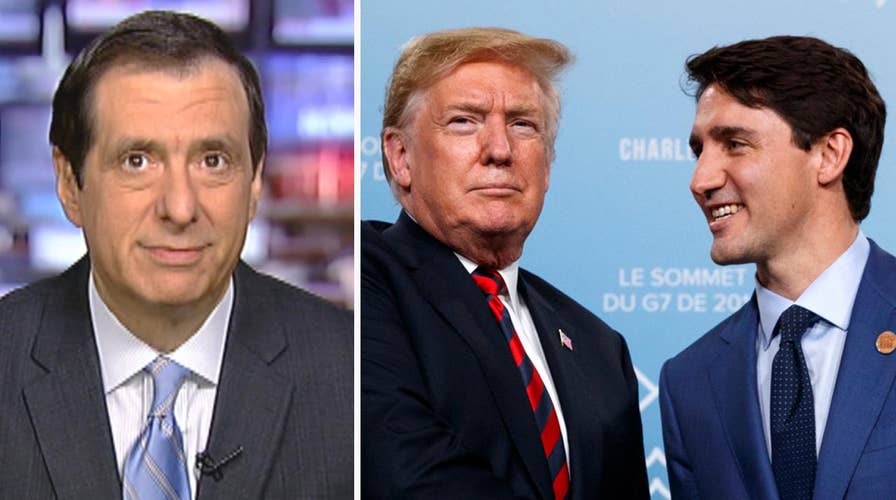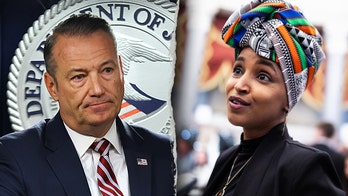Kurtz: War of words with Justin Trudeau turns personal
'MediaBuzz' host Howard Kurtz weighs in on the media's recent vulgar coverage of Trump, from Robert De Niro's profanity-laced tirade at the Tony Awards to their coverage of Trump's tough talk with Canada's Justin Trudeau.
One of my "Media Buzz" guests said the other day that the press blows past the complexities of covering President Trump's economic battle with American allies by focusing on "personality-based" coverage.
And there's some truth in that.
But how do journalists resist that when the president, after the contentious G-7 meeting, tweets from Air Force One that Justin Trudeau, having acted "meek and mild," is "very dishonest & weak"?
And, citing Canada's 270 percent dairy tariff, "then Justin acts hurt when called out!"
Donald Trump personalizes all disputes, whether they're with foreign leaders, domestic opponents or so-called fake news journalists. That's what he does. You can't expect the press not to point out that he was in a war of words with Canada as he was flying to sit down with North Korea’s brutal dictator.
But the overwhelmingly negative coverage of the G-7 drama in Quebec is revealing as well. Despite sophisticated reporting in some quarters, many in the media are covering the controversy with all the subtlety of Robert DeNiro proclaiming "F--- Trump" at the Tony Awards. (That, despite the ovation by the liberal Hollywood crowd, was a big middle finger to the 45 percent of the country that supports the president.)
Now of course the harsh comments about the United States from the leaders of Britain, France and Germany, as well as Trudeau saying Canada was insulted by the tariff hikes, are big news and fair game for criticism. But some have gone beyond that in challenging the president’s motivation.
"Trump Tries to Destroy the West," says the headline on a New York Times column by David Leonhardt.
CNBC’s John Harwood tweeted: "Trump resumes baseless rant against friendly democracy next door ... Trump reacted irrationally and then advisers made stuff up to make it sound like there was a rational basis for his irrationality."
The indictment among Trump critics is that the president enjoys blowing things up and alienating allies—and that in the process he's doing Vladimir Putin's bidding (hence his pitch for Russia to rejoin the G-7). There is little recognition that Trump may be using tough tactics to negotiate a better deal for U.S. workers, and will eventually strike a compromise.
Of course, Trump trade adviser Peter Navarro didn't exactly calm the waters by saying on "Fox News Sunday" that "there's a special place in hell" for Trudeau because he engaged in "bad faith diplomacy" with Trump "and then tries to stab him in the back on the way out the door." Canada -- which has an overall trade deficit with the U.S. -- has been a steadfast American ally whose troops have fought alongside ours in World War II and Afghanistan.
The Washington Post brought a more even-handed approach:
"Nearly a year-and-a-half into his presidency, Trump is hitting his stride on the part of the job that he seems to love the most: going it alone. That he is often doing so in defiance of his own advisers, longtime U.S. allies and Congress — including members of his own party — seems to only heighten his pleasure.
"From tariffs to pardons to immigration roundups, the president is increasingly charting his own strategy on unilateral actions — and there is evidence the approach may be working for him."
The evidence: His polls are rising.
This is a president who likes to break china, and sometimes goes too far. But he can also bring out the worst in critics who respond by going all DeNiro on him.

























